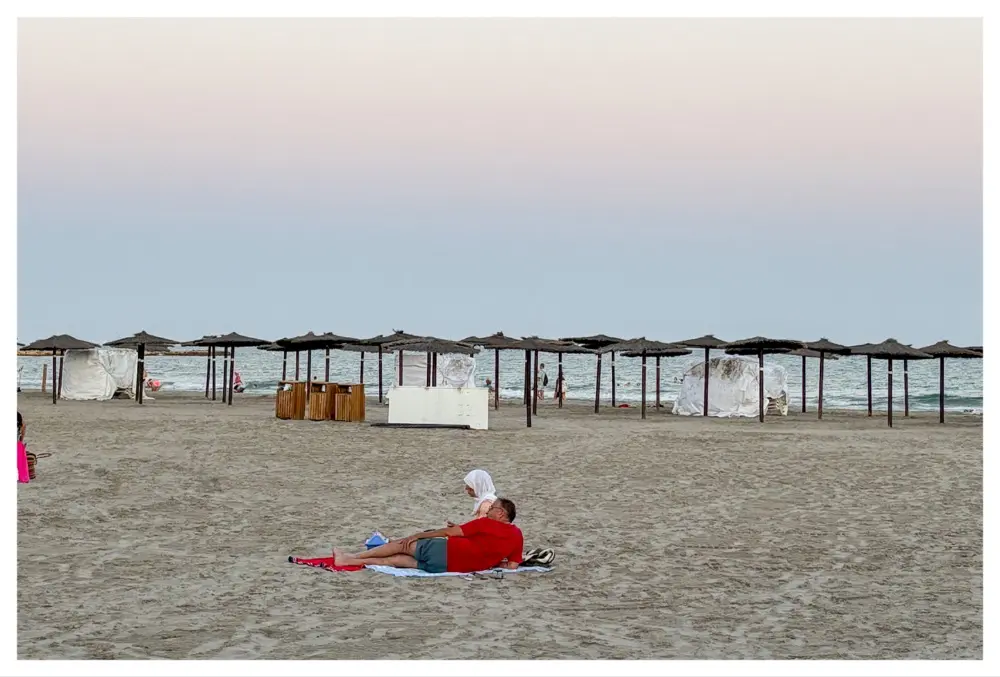French-Palestinian-Algerian filmmaker Lina Soualem, whose documentary “Bye Bye Tiberias,” featuring her mother Hiam Abbas (“Succession”), launched positively from Venice and Toronto, is set to make her feature film debut with “Alicante,” a drama starring her sister Mouna Soualem (“Oussekine”) as a young woman on an existential journey that takes her to Spain.
After exploring her Algerian grandparents’ break-up in the doc “Their Algeria” and delving into how Hiam Abbas and her family were displaced from the city of Tiberias by the 1948 Arab-Israeli war in “Bye Bye Tiberias,” Soualem will now be putting a somewhat lighter tale on screen, albeit one that continues her exploration of “questions of belonging and transmission and exiles between generations” and “finding your place in the world,” as she puts it.
In “Alicante” Mouna Soualem will play Assia, a 32-year-old Franco-Algerian photographer, who has just broken up with her long-time American partner, with whom she had been living in New York City.
Popular on Variety After returning to Paris, where she was raised, she is hurting and starts to examine her desire to have a child. “To escape such existential questions, she decides to join her family in Spain, where her parents have recently invested in a restaurant in a popular seaside resort near the city of Alicante,” says the provided synopsis. “Arriving at the airport in Alicante, Assia has no idea what she’s in for,” the synopsis adds. “What was meant to be a family vacation turns into a rescue operation for a fragile business and a shaky family equilibrium.”
“Alicante,” which is currently in development, is being produced by Paris-based Easy Riders Films, which is run by Omar El Kadi and Nadia Turincev. The project is being unveiled to prospective partners at the Marrakech Film Festival’s Atlas Workshops, mentored by U.S. director Jeff Nichols.
In Marrakech, Lina Soualem spoke to Variety about how making the transition from docs to fiction filmmaking will free her from the constraints of “reality” and why Alicante and Algeria are connected.
“Alicante” seems to connect thematically with your previous work. Do you agree?
Yes. For me, even though it’s a first fiction, it’s a film in which I keep on exploring themes that I’ve explored in my previous work, my previous documentaries. They are questions of belonging and transmission and exiles between generations, and trying to find your place when you come from exilic experiences: finding your place in the world. Especially as a woman, as a mother, as a daughter. Because the main character is a young woman in her thirties and she will be interacting with her family, but especially with the women of her family. So it’s mixing the Algerian identity that I explored in my first film and the bond between women that I explored in my second film. I was really eager to make the transition to fiction with something that I’m familiar with, while being able to have some freedom. Fiction allows me to put aside the weight of reality that was very present in my documentaries because of the tragic collective memory of Algeria as a people; Palestine as a people; and the colonial context of both.
The synopsis says that “The Algerian family feels right at home in the familiar topography of the region.” Could you elaborate on the connection between Algeria and Alicante?
Sure. It’s just that, in terms of landscape, Alicante is very similar to West Algeria and the region of Oran. Actually Oran is facing Alicante. It’s a boat ride that people do a lot. It’s 300 kilometers, so it’s very quick. And there’s a lot of Algerian immigration there. So you can see a lot of shops with Arabic writing and you see a lot of Algerian cultural places and restaurants and things like that. So it’s familiar to Algerians, while being different because it’s still Spain. And I think it’s interesting because it’s a very Spanish place, of course, but has a lot of references to Algerian culture as well. And the cohabitation of both offers a visual contrast that is really interesting for me. But Alicante also allows me to distance myself from the presupposed or overused or over stigmatized opposition between France and Algeria. Algerians are always perceived through a very stigmatizing neo-colonial prism, and their relationship with France – whether it’s a fantasy or real. And I feel that moving the subjects to a more neutral territory that doesn’t have such a heavy past, with the Algerian descendants of colonists, allows me to give them back the right complexity and gives me more freedom in the way that I want them to move in the spaces and the territory.

 Italian
Italian







